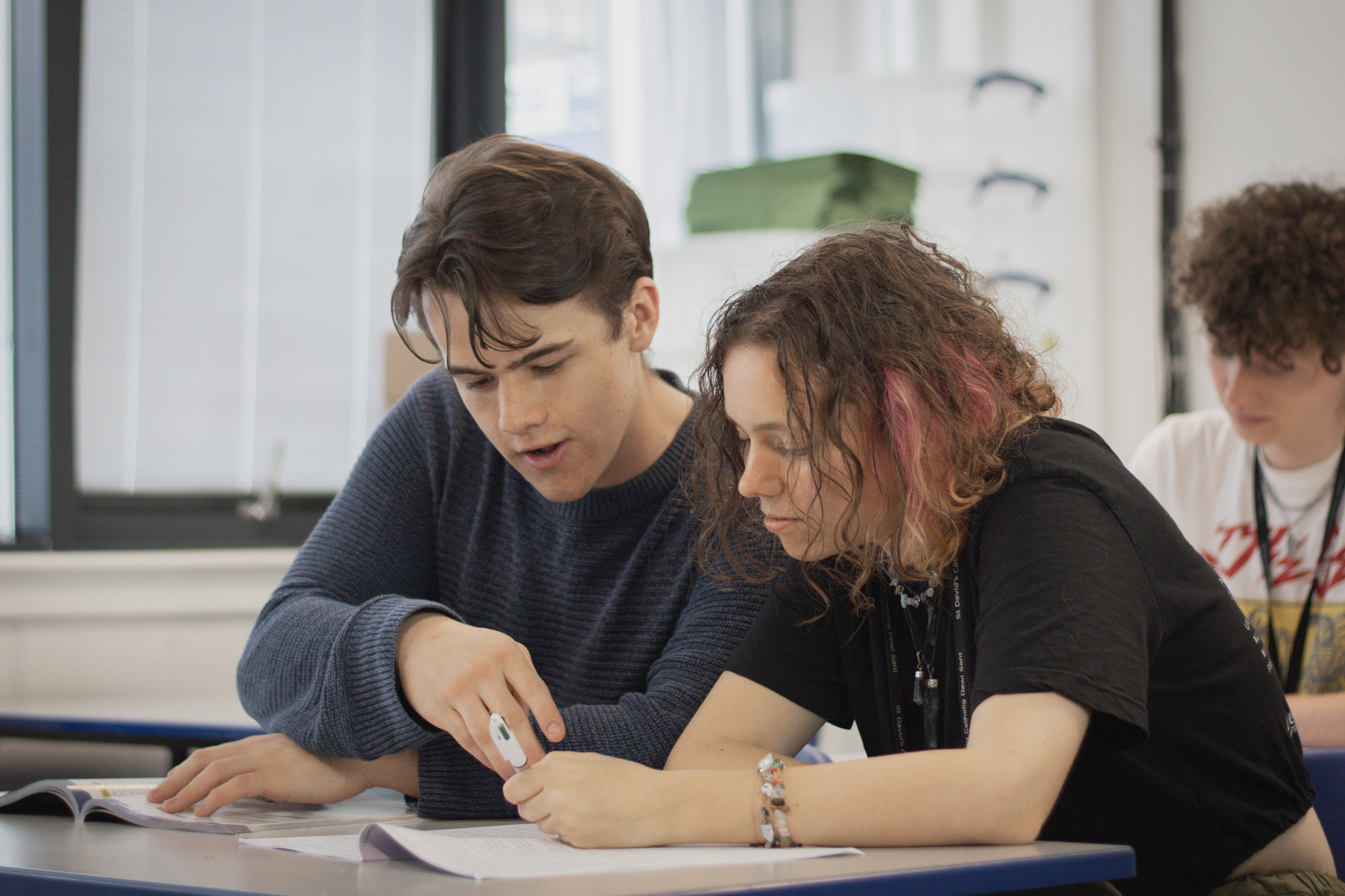A Level in Arabic, Greek, Portuguese or Turkish.
This course will encourage students to conduct independent exploration. Exploring culture, history, and society of the countries where their heritage/ first language is spoken.
This is a one-year course offered to students who are already confident reading and writing their heritage language. St David’s Heritage Languages course is designed to provide structured support to prepare students for A levels in Arabic, Greek, Portuguese and Turkish (further languages may be considered).
As language tuition is not provided, students will be guided to work independently, and in small groups, with fellow language speakers.
Students will make full use of online resources and also be encouraged to conduct their own primary research of the A level themes by speaking with family members and representatives of the wider community. It is expected that through self-study, class discussions with peers and teacher-guided exercises, students will become more aware of the grammatical structure of their heritage or first language.
Throughout this A level students will research key aspects of artistic culture, including music and cinema, and gain insight into contemporary political issues, ranging from immigration to the environment. They will also examine how social and technological changes are shaping contemporary life, as well as how historical events continue to influence the present. Students choose one of these topics to investigate in more detail and undertake an independent research project.

Students will also study literature and film in their chosen language, giving them the chance to engage in critical analysis.
Class members will given opportunity to share their views of the various films and books that they enjoy and in small groups, they will discuss the societal and historical context of one film and one book, identifying key quotes and analysing the themes presented in each set work.
Students of different heritage and first languages will work together in one classroom, comparing how the common aspects of society – family life, education & work, popular culture, the media and government are structured and regarded in the different countries. Through respectful discussion this will encourage cross-cultural learning.
An A Level in Heritage languages equips students not only with communicative competence in the language, but also with a wide range of transferable skills valued by universities and employers alike. These include critical thinking, analytical skills, effective communication, team-work and independent research.

This course is assessed into a total of 3 papers sat after one year of study.
- Paper 1:
Reading comprehension questions, short translation into English and an essay of 270 to 320 words in their chosen language based on their independent research project
- Paper 2:
Translation from English into students’ chosen language, two essays of 270-320 words in the heritage language based on the book and film studied during the course
- Paper 3:
Listening & reading comprehension questions, plus an extended written essay of 180-230 words in the heritage language, in response to the reading and listening texts in the exam paper.
The course content covers following themes:
- Social issues and trends
- Political and artistic culture
- Grammar
- Set Works: one novel and one film
- Independent Research Project related to ONE of the topics studied during the course
Having a proven qualification in another language is a valuable and increasingly sought-after asset in today’s globalised world. An A Level in a Heritage Language demonstrates not only advanced linguistic ability, but also cultural awareness, adaptability, and intellectual curiosity: qualities highly regarded by universities and employers alike.
An A Level in international languages provides an excellent foundation for a wide range of university degree courses. It is particularly beneficial for subjects such as law, medicine, business studies, marketing, international relations, export management, civil service, diplomacy, journalism, media studies, education, and tourism.
Beyond academic progression, language qualifications are strongly associated with increased employability and career flexibility. Numerous reports have highlighted the significant benefits of language proficiency for trade, industry, and international cooperation. An A level in a Heritage Language can open doors to careers in the UK and abroad, especially in roles involving cross-cultural communication or engagement with the heritage language speaking communities.
In addition, studying a language at A Level helps develop a wide range of transferable skills, including critical thinking, problem-solving, independent research, and effective communication. These skills are essential across many professional sectors and contribute to long-term personal and professional development.
A demonstrated high level of language proficiency in the chosen Heritage Language, which will be assessed on completion of a Microsoft Form application – available on request. This will then be decided by the course teacher.
This course requires a high degree of self-motivation, commitment and excellent research skills, as learners will be guided to conduct independent study.





